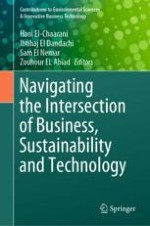In today's world, businesses are increasingly recognizing the importance of sustainability and technology as essential components of their operations. This book offers a comprehensive guide to help you navigate the complexities of the interconnected areas of business, sustainability and technology. The book further shows how sustainability and technology are transforming the business landscape and how they can harness their power to drive innovation, create value and achieve long-term success. Drawing on the latest research and real-world case studies, the book provides practical insights and strategies that readers can use to navigate this rapidly changing landscape. The book further offers a comprehensive roadmap to navigate the intersection of business, sustainability and technology, including developing sustainable business models and cutting-edge technologies such as artificial intelligence and blockchain. This book is an essential resource for business leaders, entrepreneurs, investors and students.
